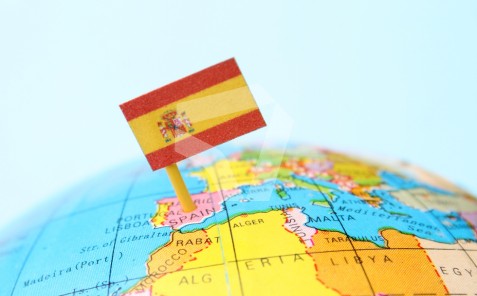Difference Between the NIE and a Residence Permit in Spain
The NIE and the TIE are not the same. Being a legal resident in Spain is also distinct from holding a Foreigner Identity Number. Below we explain the different scenarios and concepts that may be of interest to foreign nationals.
17/04/2025

📝- Index
Does having an NIE mean I am a legal resident in Spain? This is one of the most frequently asked questions by foreigners interested in obtaining residency in Spain. Another common question is: What procedure should I follow if I have an NIE but want to obtain legal residency in Spain?
First of all, it is important to understand that the NIE is not the same as legal residency status. Holding an NIE does not entitle an individual to the same rights conferred by a residence permit. These are distinct legal concepts that produce different legal effects.
In addition to the NIE and legal residency status, there is a document in Spain called the TIE, which also differs from the NIE in several respects.
What is the NIE and What Is It for?
The NIE (Número de Identificación de Extranjero) is a Foreigner Identity Number used to identify non-Spanish nationals before the Spanish Administration.
Generally, a foreigner is assigned an NIE upon their first contact with a Spanish administrative body (it is even possible for this to occur without the individual being physically in Spain). Most interactions that a foreigner has with the Spanish Administration will involve the use of this NIE, which, importantly, is only a number.
A foreign national may have an NIE without having legal residency in Spain; residency must be obtained through a separate legal process.
What Is the TIE and How Does It Relate to the NIE?
The TIE (Tarjeta de Identidad de Extranjero) is the Foreigner Identity Card—a physical document containing identification data, a photograph, address, the NIE number, and the type of residence or stay authorization held in Spain.
In another article, we detail the differences between the NIE and the TIE. We also clarify why the NIE and legal residence are not the same: Does having an NIE mean one is a resident?
Now that you understand the primary distinctions between these three concepts, let’s revisit the main question of this post: How can one obtain legal residency in Spain after receiving an NIE?
What Is Legal Residency in Spain?
As mentioned above, having an NIE does not grant the rights associated with legal residency status in Spain. That status is granted through the issuance of a residence permit, which allows a foreign national to reside lawfully in Spain. Legal residence or lawful stay:
-
-
Certifies that the individual is lawfully permitted to live or remain in Spain.
-
Some types of residence permits also allow the individual to work legally in Spain.
-
Is typically granted by an administrative resolution.
-
Is usually reflected on the TIE, which specifies the type of residence authorization the holder has.
-
🔹Reminder: When a non-EU foreign national wants to live in Spain, they must apply for a residence permit. There are many types of permits, each suited to specific circumstances. One of the most well-known paths to legal residence is through arraigo (rooting or integration), particularly helpful for foreigners who seek labor and social integration. In another article, we explain the various types of arraigo in Spain and how to apply for them.
How to Obtain Legal Residence in Spain
First, in order to become a legal resident in Spain, it’s important to identify your legal status: Are you a non-EU national, or a citizen of the EU, or a national of a country that is part of the European Economic Area Agreement or Switzerland?
If You Are a Non-EU National
If you are non-EU and wish to reside in Spain, you must apply for a residence permit. As mentioned earlier, there are multiple types of permits depending on your personal circumstances. In fact, the new Immigration Regulation has expanded regularization pathways, introducing new figures such as social training arraigo and the second-chance arraigo.
If your goal is to live in Spain indefinitely, it is highly advisable to seek legal advice from immigration specialists to evaluate your case and help you choose the residence permit best suited to your situation.
If You Are a Citizen of the EU or Switzerland
If you are an EU citizen or a national of a country that is part of the European Economic Area Agreement or Switzerland, you must obtain a Certificate of Registration as an EU Citizen if you plan to reside in Spain for more than 3 months (you do not need a visa to live or work in Spain). This certificate formalizes your legal residence in Spain as a Union citizen.
Our advisors can help you select the residence permit that best fits your profile. Depending on your specific situation, a different type of permit may be required.
✅Do you have questions about your legal status in Spain or need help applying for residency? Check out our immigration services and discover how we can help you boost your international project.

Do you have any questions?
If you have any questions after reading "Difference Between the NIE and a Residence Permit in Spain", we are here to help you.
Let's talk. We guide you clearly and step by step.
